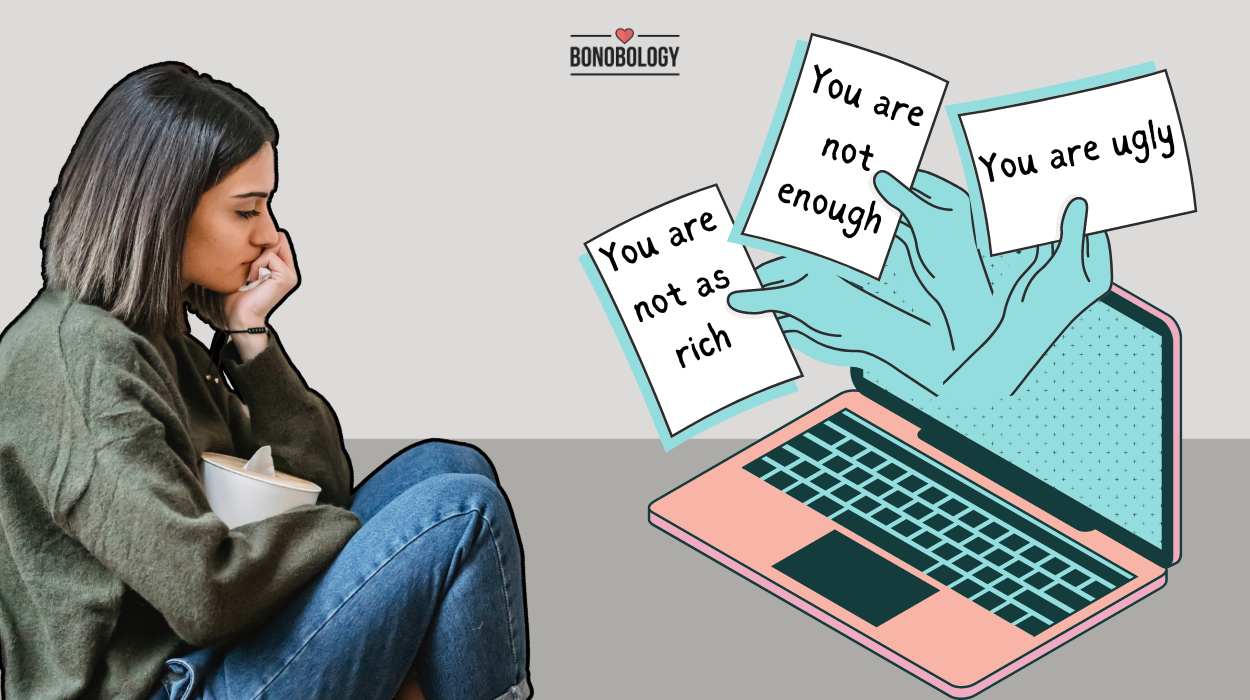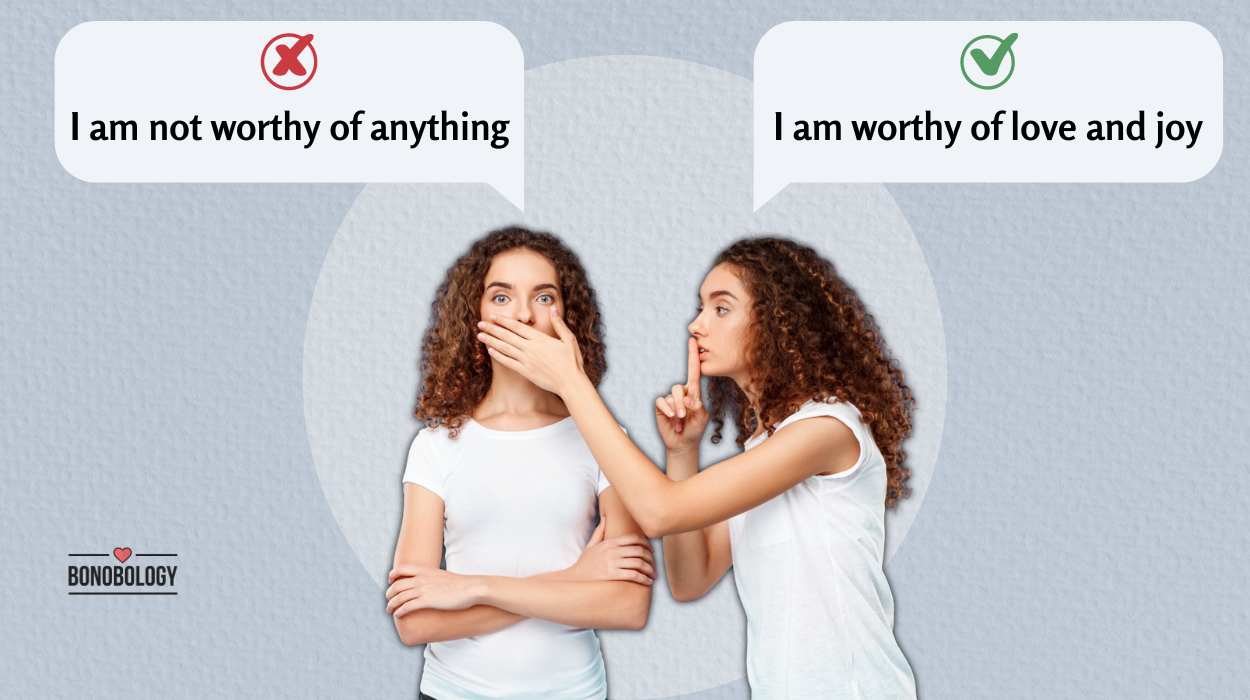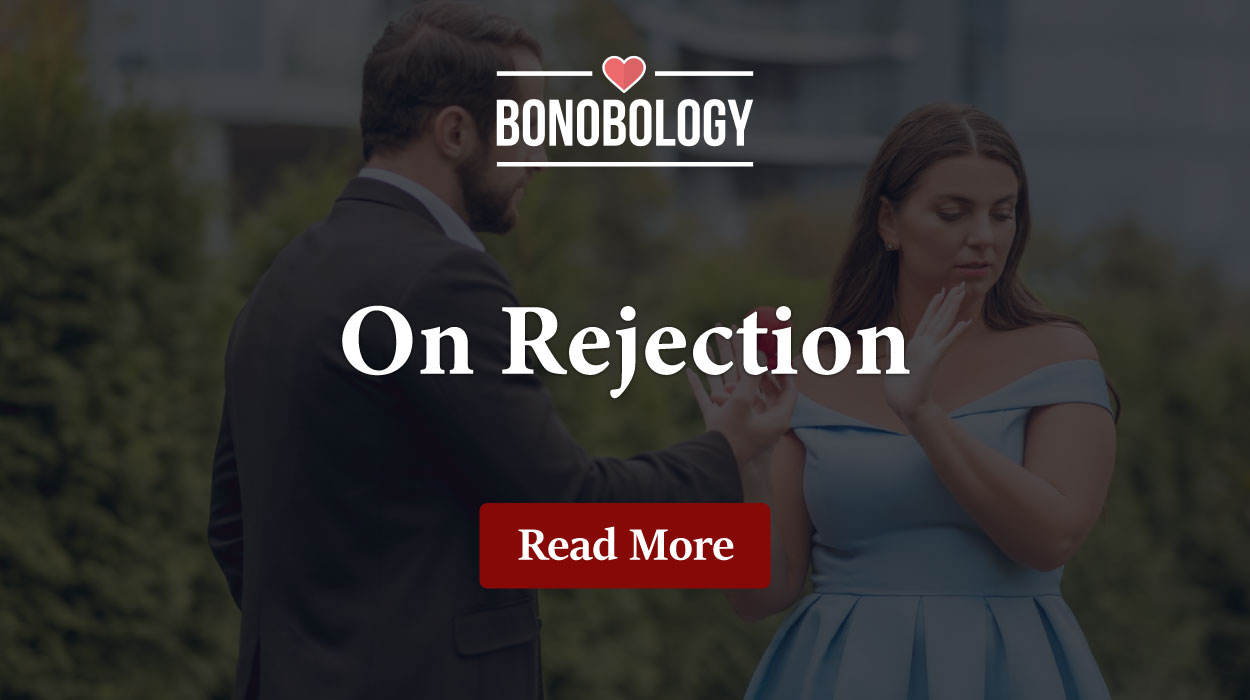In the intricate maze of human emotions, the pervasive question of one’s lovability can cast a profound shadow on personal well-being. The contemplation “Am I unlovable?” echoes through the hearts of many, reflecting a complex interplay of internal struggles and external influences.
This article delves into the depths of this emotional labyrinth, exploring nine common reasons behind the haunting sensation of being unlovable. From the intricacies of self-esteem and past traumas to the impact of societal expectations and mental health, each facet contributes to the intricate mosaic of our self-perception. By unraveling these threads, we aim to illuminate the pathways toward self-discovery and healing, fostering a compassionate understanding of the factors that may cloud our sense of worthiness in the realm of love and connection.
According to Harley Therapy, feeling unlovable might ‘sound’ like it’s not a big deal. But it is a very serious matter. It can be a contributing cause for many other psychological conditions and is sadly a leading cause of suicide.
We asked our expert counselor Nandita Rambhia (M.Sc. in Psychology) to help us understand why some people have the fear of being unlovable and how to cope with being unloved. Read on to find out what she has to say about the matter and join us on a journey of introspection, as we navigate the nuanced landscape of human emotions and unravel the mystery behind the question, “Why am I unlovable?”
Why Do You Feel Unloved? 9 Reasons
Table of Contents
You might ask yourself, “What makes a person unlovable?” Well, absolutely nothing. Everyone is lovable, and feeling like you aren’t can be a result of some deeper issue. Is it possible to be unlovable? Nandita says, “I don’t think it is possible for any person to be unlovable. It is about your own perspective.” And yet, you can’t shake off the thought, “I feel unloved and unwanted by everyone.” It’s time to delve deeper and investigate where this “I feel unloved” feeling is stemming from.
Feeling unlovable can stem from various factors, and it’s important to recognize that these feelings are complex and subjective. But why is feeling loved even important? Feeling loved is an essential element of the human experience, influencing our mental, emotional, and physical well-being. Embracing love provides a deep sense of emotional safety and support, acting as a powerful antidote to the stresses and challenges of life.
Related Reading: I Don’t Feel Loved: Reasons And What To Do About It
A study demonstrated that a sense of love and security “calms jittery neurons.” In the study, female subjects were scanned through an MRI scanner while being administered a slight shock to their ankles. The females left alone in the scanner felt the shock and the pain. On the other hand, the females holding the hand of the lab technician felt the shock but much less pain. Likewise, the females holding the hands of their loving husbands felt the shock but no pain.
Due to a number of reasons, some people might develop certain mental schemas (patterns of thought) that lead them to believe that they are unlovable and that no one will ever want them, or that they aren’t enough, resulting in the “I feel unloved and unwanted by everyone” feeling. We are here to tell you why this happens and how to cope with this feeling. Below are some causes a person might be feeling unlovable in a relationship or in their day-to-day lives.
1. Low self-esteem
“Low self-esteem can be a potent catalyst for feeling unlovable, and one of the most common causes for someone feeling unlovable, creating pervasive personal beliefs that one is inherently unworthy of affection,” says Nandita. When individuals harbor a negative perception of themselves, it distorts their perception of how others perceive them and they begin to see signs of feeling unwanted in a relationship.
Morris Rosenberg and Timothy Owens, in their book Low Self-Esteem People: A Collective Portrait, say that people with low self-esteem tend to be hypersensitive. They have a fragile sense of self that can easily be wounded by others. Furthermore, people with low self-esteem are “hypervigilant and hyper-alert to signs of rejection, inadequacy, and rebuff.” Here’s how people with low self-esteem tend to feel unlovable:
- They may struggle to accept love or convince themselves that they don’t deserve love
- Their self-doubt can lead to a pattern of self-sabotage in relationships, as they may find it challenging to believe in their own worthiness of love and acceptance
- They have trouble loving themselves and tend to discount the positives. This means that they only focus on the negatives in their lives and disregard the positive experiences
- Breaking this cycle often involves addressing and rebuilding self-esteem through self-reflection, positive affirmations, and supportive connections
Related Reading: The Role Of Self-Esteem In Relationships – Take This Test To Assess Yours Today!
2. Unrealistic expectations
Unrealistic expectations create unattainable standards for oneself and others. When people set excessively high expectations in relationships or for themselves, they set themselves up for failure. Any perceived failure to meet these unrealistic standards can lead to self-criticism and a belief that one is fundamentally flawed or unlovable. As a result, a person may start questioning, “Am I loved?”, which further dents their sense of self-esteem.
The gap between reality and such lofty expectations becomes a breeding ground for feelings of inadequacy and unworthiness, undermining one’s confidence. This makes it difficult for people to feel accepted or believe that others could genuinely value them. They perceive even the slightest departure from their expectations as signs of feeling unwanted in a relationship. Addressing this often involves reevaluating expectations and adjusting them to be more realistic and of achievable levels, fostering self-compassion, and embracing the imperfections that make each person uniquely lovable.
3. Past experiences
Negative past experiences, such as rejection, abandonment, or traumatic events, can contribute to feelings of being unlovable. These experiences can create emotional scars that affect one’s perception of themselves and their ability to be loved, leading a person to believe that the “I feel unloved and unwanted by everyone” feeling they are struggling with is a fact. Here are some examples that might help you understand this better.
- After numerous job rejections, my neighbor Mark began questioning his competence, feeling unlovable as he struggled to separate professional setbacks from his personal worth
- A friend of mine, Emily, has a similar situation. Her parents divorced when she was young. This left her with a lingering sense of abandonment that fueled insecurities and made forming deep connections challenging for her. This fostered feelings of being unlovable
- My friend, Sarah, who experienced a painful breakup marked by betrayal, developed trust issues, and found it difficult to open up in subsequent relationships, attributing the trauma to her sense of being fundamentally unlovable
Linda Graham, a licensed marriage and family therapist, explains in her blog how past experiences can make us feel unlovable. She says that repeated experiences of reaching out and encountering pain can lead the amygdala, our fear and emotional center, to encode a memory linking yearning with anticipation of hurt, time and again, creating an unconscious loop, reinforcing a neural pattern. The brain, accustomed to this repetition, establishes a rigid neural connection, akin to a self-reinforcing loop or neural cement.
Related Reading: 10 Subtle Abandonment Issues In Relationships And 5 Tips To Cope With Them
4. Constant comparison
Constantly comparing oneself to others, especially in terms of physical appearance, achievements, or relationships, can lead to feelings of inadequacy and unlovability. The habit of comparing yourself to others often stems from societal standards and unrealistic ideals.

As individuals internalize these comparisons, they may start to believe that their unique qualities are insufficient, breeding a deep-seated conviction of being unlovable. Breaking free from this cycle involves practicing self-compassion, recognizing individual strengths, and embracing a more authentic and self-affirming perspective, independent of external comparisons.
5. Lack of positive reinforcement
A lack of positive reinforcement can profoundly impact an individual’s sense of self-worth and contribute to feelings of being unlovable. Here’s how positive reinforcement works:
- Positive reinforcement, which includes affirmations, encouragement, and expressions of love, plays a crucial role in shaping a person’s self-perception
- Without these affirming experiences, individuals may struggle to internalize a positive self-image
- The absence of positive reinforcement, especially during the formative years, can lead to childhood trauma and persistent core beliefs that one is unworthy of love and acceptance
- Distant parents who constantly criticize and rarely praise can lead the child to develop deeply ingrained belief that they are unworthy of love. Such people can go through their entire adult life wondering, “Am I loved?”
Nandita says, “If an authority figure (parent, teacher, guardian, relative) has constantly been critical of a person, especially during their early childhood, or gaslit them into feeling inferior to others, it would most definitely lead to low morale.” Over time, this deficiency in positive external validation and emotional abuse may contribute to low self-esteem, making it challenging for individuals to believe in their lovability. They may start believing that they don’t deserve positive relationships.
Addressing these feelings often involves building self-esteem through positive affirmations, seeking supportive connections, and opting for professional counseling. Growing up in an environment where love and positive reinforcement have been scarce can impact a person’s self-worth and their belief in their own lovability.
Related Reading: 8 Relationship Problems You Can Face If You Had Toxic Parents
6. Mental health issues
Mental health issues contribute to feelings of unlovability by distorting self-perception, fostering negative thoughts, and influencing social interactions. Here’s how:
- Someone who is mentally unwell or suffers from conditions such as depression and anxiety can start believing in inherent flaws or unworthiness
- Social withdrawal, fear of rejection, and difficulties in emotional regulation or emotional abuse further add to the struggle, limiting positive interpersonal experiences
- The impact of mental illness on relationships, coupled with low energy and motivation, can reinforce a sense of isolation (loneliness) and unlovability
The interplay between mental health and feelings of unlovability often involves a cyclical pattern. Breaking this cycle requires a holistic approach, including therapy, medication, and self-care practices, aimed at cultivating self-compassion, building a support network, and fostering healthier connections. Recognizing that mental health struggles do not define one’s capacity for love and connection is a crucial step in the journey toward healing and a more positive self-perception.
7. Fear of vulnerability
Sometimes the fear of being unlovable or feeling unloved in a relationship stems from the fear of being vulnerable and opening up to the possibility of rejection. This fear can lead to a self-fulfilling prophecy where people isolate themselves emotionally. Fear of vulnerability in a relationship can lead a person towards loneliness, because of self-isolation. A study shows:
- Loneliness can lead to personality disorders (such as borderline personality disorder, narcissistic personality disorder, etc.) and psychoses, suicide, impaired cognitive performance and cognitive decline over time, increased risk of Alzheimer’s Disease, diminished executive control, and depressive symptoms
- Loneliness also increases perceived stress, fear of negative evaluation, anxiety, and anger, while it diminishes optimism and self-esteem
Related Reading: 7 Signs Of Loneliness In A Relationship And How To Cope
The study thus suggests that a perceived sense of social connectedness serves as a scaffold for the self. Damage the scaffold and the rest of the self begins to crumble.
8. Unhealthy attachment styles
Unhealthy attachment styles can contribute to a profound sense of unlovability through various mechanisms. Here’s how:
- Those with anxious attachment may fear abandonment, seeking constant reassurance and forming emotional dependencies that reinforce the personal belief that they are unlovable without continual external validation
- Conversely, individuals with avoidant attachment styles may struggle with intimacy, fostering emotional distance and a perception of being incapable of sustaining meaningful connections
Disorganized attachment patterns, marked by inconsistent behavior, can create confusion and emotional turmoil, making a person feel unworthy. But what causes these unhealthy patterns? “When a person’s first attachment experience is being unloved, this can create difficulty in closeness and intimacy, creating continuous feelings of anxiety and avoidance of creating deep meaningful relationships as an adult,” says Nancy Paloma Collins, LMFT.
Unhealthy attachments often lead to self-fulfilling prophecies and heighten attachment issues, which a person may interpret as signs of feeling unwanted in a relationship. Behaviors driven by insecurities can strain relationships, reinforcing the belief of being unlovable. Therapy plays a crucial role in addressing and transforming these patterns, fostering self-awareness, establishing secure attachments, and cultivating a more positive self-perception.
9. Cultural and societal influences
Cultural and societal influences can significantly contribute to feelings of unlovability by imposing unrealistic standards and expectations. Dominant cultural narratives often dictate norms related to beauty, success, and interpersonal relationships, creating a framework that may be unattainable for some individuals.
Those who deviate from these prescribed ideals may internalize a sense of inadequacy, believing that they fall short of societal benchmarks for love and acceptance. Discrimination, stereotyping, or exclusion based on cultural differences or gender can worsen these feelings, fostering a belief that one is unlovable due to societal biases.
A study shows that self-esteem can be best gained from identities that fulfill the values of the surrounding culture. For example:
- Participants in cultural contexts where people emphasized values such as self-direction and having a stimulating life (e.g., the UK, Western Europe, and some parts of South America) were more likely to derive self-esteem from controlling their own lives
- Those in cultures where there was relatively more emphasis on values such as conformity, tradition, and security (e.g., parts of the Middle East, Africa, and Asia) were relatively more likely to derive self-esteem from doing their duty
Overcoming these challenges involves challenging societal norms, embracing diversity, and fostering a sense of self-worth independent of external cultural expectations. Seeking support from communities that promote inclusivity and understanding can also be crucial in combating the impact of cultural or societal influences on feelings of unlovability.
Related Reading: Stereotyping Men: Why It’s Time To Think Outside The ‘Man Box’
It is important to note that these reasons are interconnected, and an individual may experience a combination of these factors. Nandita suggests that a person should choose to love themselves. “It is about your perception of yourself, rather than society’s outlook on you,” she says.
The causes of feeling unlovable — or feeling unloved in a relationship — are multifaceted, intertwining psychological, emotional, and societal elements. Exploring these factors in therapy, practicing self-compassion, and challenging negative perceptions are essential steps toward breaking the cycle and fostering a healthier, more positive perception of oneself in the context of love and acceptance. In the next section, we will look at a few ways to cope with feeling unlovable.
How To Cope With Feeling Unloved?
If you find yourself asking questions like “Why do I not feel worthy of love?” or “What makes a person unlovable?” or Why do I keep feeling unloved in a relationship?”, it could be due to some of the reasons listed above. But what about dealing with such a situation? Now, there are a lot of ways to cope with feeling unloved or unlovable. Navigating the intricate landscape of feeling unlovable requires a compassionate and intentional approach to self-discovery and healing. Acknowledging these emotions is the first step in a journey toward self-acceptance and resilience.

A Quora user said, “The way you cope with being unlovable is the way Hellen Keller coped with being born deaf, dumb and blind. You find your purpose.” Another user suggested, “Start with thinking ‘you matter’. When you love, respect, and care for yourself, you can love and care for others too. Whenever you want to give something to someone, first start with yourself. You want to love, first love yourself, make yourself happy. It will flow from you like blood flows in your vein then.” Here are some ways you can cope with feeling unloved.
Related Reading: Discover Your Worth: 13 Ways To Feel Loved And Appreciated
1. Practice self-compassion
Practice self-compassion by treating yourself with the same kindness and understanding that you would offer to a friend facing similar struggles. Give yourself unconditional love, be patient with yourself, and acknowledge that everyone has insecurities. Tara Brach, in her best-selling book Radical Acceptance: Living Your Life with the Heart of a Buddha says, “Acceptance and love are what heal the ‘trance of unworthiness’. And they are the only things that heal feeling unlovable.”
2. Challenge your negative thoughts
Nandita suggests, “Figure out why you’re feeling unlovable. Is it a self-inflicted feeling? Is it due to a partner who is being distant, or gaslighting you in the relationship, or ill-treating you emotionally? Is it because of some past experience? Once we find out the ‘why’, it becomes easier to go further into treating it.” Here’s how you can do that:
- Identify and challenge negative thought patterns contributing to feelings of unlovability
- Replace these thoughts and negative self-talk with more balanced and positive affirmations to reshape your self-perception
3. Seek professional help
Consider therapy or counseling to explore the root causes of these feelings. Therapists can provide valuable insights and tools to navigate and overcome feeling unlovable and other challenges that come with it. But in the end, the only person who can help you is you.
According to Nandita, one should seek professional help from a licensed clinical psychologist to rule out any mental disorders that are associated with feeling unworthy and unlovable. And if a mental disorder is diagnosed, the professional will be able to help you find the best treatment plan. Should you need it, skilled and experienced counselors on Bonobology’s panel are here for you. A licensed clinical psychologist will be able to offer treatments such as cognitive-behavioral therapy, dynamic interpersonal therapy, and commitment therapy.
4. Build healthy relationships
Nandita says that having a strong support system and a good social connect is important. But even more important is trust. So confide in the people you trust, and keep your friends and family members close. If you’re feeling unlovable in a relationship, it might be time to assess if it would be better to leave that relationship. Here’s how healthy relationships help:
- Building healthy relationships serves as a powerful antidote to feelings of unlovability by providing positive social reinforcement and support
- Engaging with individuals who understand, accept, and appreciate you contributes to a sense of belonging and worthiness
- These relationships foster an environment where you can challenge negative self-perceptions, receive genuine affection, and gradually rebuild a positive sense of self in the context of love and connection
Related Reading: How Spending Time With Friends Helps Improve Your Relationship
5. Set realistic expectations for yourself
Setting realistic expectations is a crucial coping strategy for combating feelings of unlovability, as it involves acknowledging that perfection is unattainable. By reassessing and adjusting expectations, you allow room for self-acceptance and embrace the reality of being human, with strengths and imperfections.
This shift in mindset fosters a more compassionate view of yourself, contributing to a positive sense of self-worth and an increase in self-confidence. “You should remember that it is all majorly psychological, so it is imperative to retrain your mind and thoughts to be kind to you and look at the positive qualities more,” says Nandita.

6. Engage in self-care and focus on personal growth
Prioritize self-care and wellbeing activities that bring you joy and relaxation. Taking care of your physical and emotional wellbeing can positively impact your self-esteem and overall outlook. Identify areas for personal growth and set realistic goals. Accomplishments, no matter how small, can boost self-esteem and contribute to a more positive self-image. Let go of your self-sabotaging behaviors.
7. Try affirmations, journaling, mindfulness, and meditation
Focus on positive activities to know yourself better, stay aware of your feelings, and learn to sieve out positivity through a mess of maladaptive thoughts. Here’s what’s required:
- Create and repeat positive affirmations that reinforce feelings of self-worth and lovability. Affirmations can be a powerful tool to counteract negative self-talk and promote a more positive mindset
- Finding ways to express your feelings and thoughts through journaling can be a therapeutic way to gain clarity and insight into the root causes of feeling unlovable. It also provides a record of your progress over time
- Practice mindfulness and meditation to cultivate self-awareness and reduce anxiety. These practices can help you stay grounded in the present moment and develop a more balanced perspective
Embracing personal strengths, understanding the root causes, and gradually rebuilding a positive self-perception are crucial aspects of this transformative process. Through self-reflection and intentional steps, individuals can cultivate a more authentic and loving relationship with themselves, ultimately breaking free from the grip of unlovability and fostering a sense of worthiness in love and connection. So remove questions like ‘Is it possible to be unlovable?’ and ‘Why do I not feel worthy of love?’ from your mind and try a few things mentioned above to help you cope with feeling unlovable.
Key Pointers
- Feelings of unlovability can be very dangerous for a person, sometimes even leading to suicide. So, it is very important to find out what is causing these feelings and how to cope with them
- Some common causes of feeling unlovable are low self-esteem, past trauma or experiences, mental health issues, unrealistic expectations, and societal influences
- Coping strategies involve fostering self-compassion, challenging negative thought patterns, and seeking support from trusted individuals or professionals
In the intricate exploration of the haunting questions “Am I unlovable?” and “Why am I unlovable?,” it becomes evident that the journey to self-discovery and the healing process are both personal and transformative. Acknowledging and challenging negative thought patterns, fostering self-compassion, and seeking support are foundational steps toward dismantling the roots of unlovability.
It is within the deliberate steps of self-reflection, intentional growth, and cultivating meaningful connections that individuals can transcend the shadows of unlovability, ultimately discovering a profound and enduring love and acceptance within themselves. The journey toward self-love is not linear, but through patience, self-compassion, and commitment, one can emerge from the depths of doubt into a brighter and more affirming understanding of one’s inherent lovability.
Your contribution does not constitute a charitable donation. It will allow Bonobology to continue bringing you new and up-to-date information in our pursuit of helping anyone in the world to learn how to do anything.
Ask Our Expert
You must be Logged in to ask a question.



Featured
How To Get Over Trust Issues — A Therapist Shares 9 Tips
Learn How To Forgive Yourself For Hurting Someone You Love
How To Find Peace After Being Cheated On — 9 Tips From A Therapist
How To Forgive A Cheating Husband: 15 Helpful Tips
35 Disturbing Signs Of Gaslighting In A Relationship
What Is Narcissistic Ghosting And How To Respond To It
‘My Husband Starts Fights And Then Blames Me’: Ways To Cope
How To Rebuild Your Life After The Death Of A Spouse: 11 Expert-Backed Tips
My Husband Died And I Want Him Back: Coping With Grief
11 Signs Your Girlfriend Was Sexually Abused In The Past And How To Help Her
Coping With Breakups: The Must-Have Breakup Apps For Your Phone
13 Heartbreaking Signs You Are Wasting Your Time Trying To Get Your Ex Back
Why Are You Obsessed With Someone You Barely Know — 10 Possible Reasons
33 Phrases To Shut Down Gaslighting And Silence Gaslighters
The Emotion Wheel: What It Is And How To Use It To Build Better Relationships
The Role Of Supportive Relationships In Addiction Recovery
7 Signs You Have A Verbally Abusive Wife And 6 Things You Can Do About It
Mommy Issues In Women – Meaning, Psychology, And Signs
Lovesickness — What Is It, Signs, And How To Cope
11 Expert Tips To Stop Being Obsessed With Someone